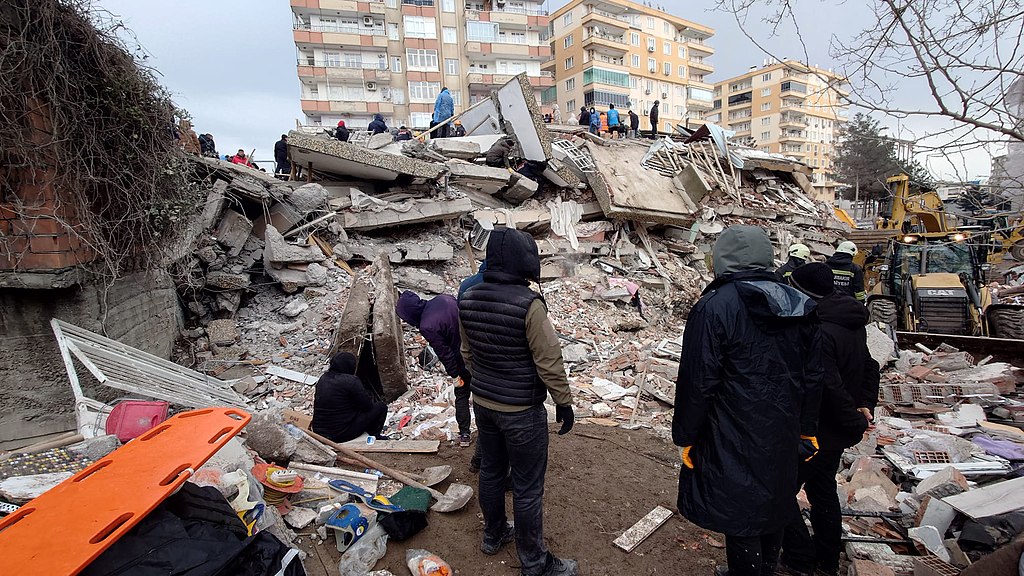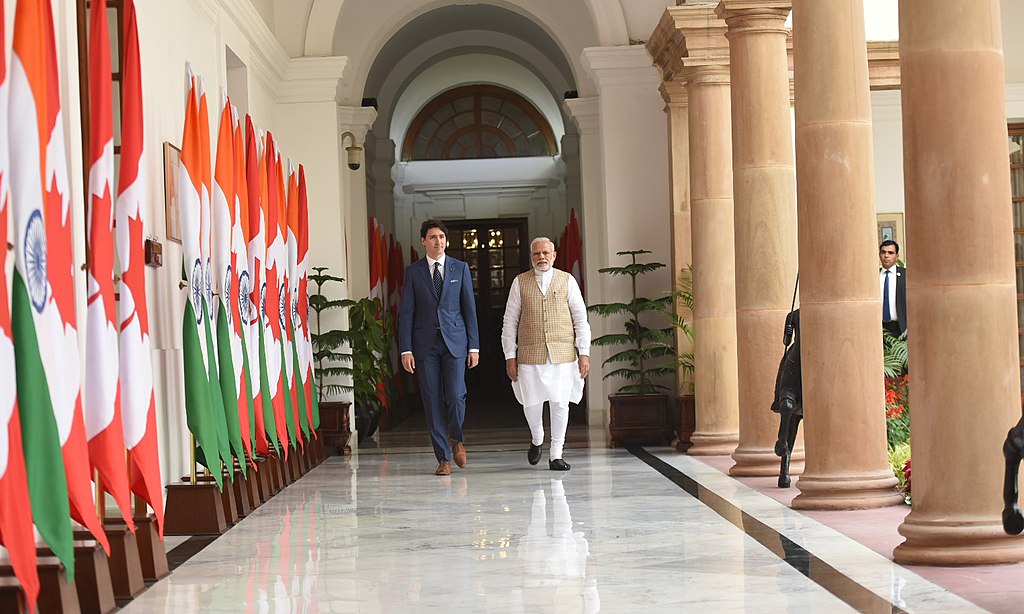This is a summary of the original article by Tessa Fox that may be found here
On Monday, 6 February 2023, a catastrophic and destructive earthquake, exceeding 7 on the Richter scale, struck southern and central Turkey as well as northwestern Syria. The quake struck in the wee hours of a wet and desperately cold winter morning, bringing down thousands of buildings, killing more than 50,000 people most of whom were sleeping, and reducing residential areas to rubble. The enormity of the tragedy cannot be overstated. Rescue and relief efforts will continue for weeks, maybe months.
In rebel-held parts of northwest Syria where the quake struck, the suffering is worse than in Turkey, and multifaceted. People who had long suffered man-made cruelties were now apparently under assault by nature too, their plight exacerbated by years of conflict and neglect. There is barely a modicum of a state left, let alone one that can coordinate and fund rescue efforts at this scale. People that have already been displaced multiple times over the course of the civil war now find themselves without homes once again.
As pledges of aid and support came pouring in from all over the world, few were aimed at this impoverished and embattled part of Syria. The task of digging people out of the rubble fell once again to the overstretched and underfunded White Helmets, who spent the past decade rescuing people from under the rubble of airstrikes.
It took three days for the UN to announce it was readying a convoy of aid to northwest Syria. While 80,000 personnel, including international teams, had been deployed to Turkey’s east by Wednesday, only 5% of the impacted sites and towns in northwest Syria were covered by search-and-rescue operations. By Thursday, cries for help from under the rubble had grown fainter.
Northwest Syria has been in crisis mode for years, so what occurred in the immediate aftermath of the earthquake was somewhat inevitable, though also preventable. The last 12 years have seen the international community fail in protecting the Syrian people from bombardment by the Bashar al-Assad regime and its ally, Russia. Access to aid, particularly for the 2.8 million people dependent on it in the northwestern enclave, has become less available and more politicized even in normal times.
Authorized cross-border points for UN aid to be delivered from Turkey to Syria have dwindled over the years to just one remaining crossing, at Bab al-Hawa. No UN aid crossed the border here until around midday on Thursday. The explanation circulated was that the delay was due to the roads being too badly damaged by the earthquake, rendering the border crossing inaccessible. At the same time, bodies of displaced Syrians who had died in their homes in Turkey were being transported in pickup trucks and delivered at Bab al-Hawa to be collected by relatives and buried on the other side of the border.
If Turkish authorities could organize the transporting of the deceased to the border, amid the overwhelming pressure they were facing to aid their own people, was it really not possible for the UN to find a way to navigate the roads and send aid across immediately?
International Crisis Group Senior Syria Analyst Dareen Khalifa said the roads shouldn’t be an argument or excuse for the UN not to send rescue teams or aid. “There are a million routes to Syria,” Khalifa said. “I think the UN should have had a more judicious interpretation of the mandate and used other crossings if this one was deemed inoperable.”
Beyond Bab al-Hawa, at least three other border crossings were informally open and operational: Bab al-Salameh, Jarablus and al-Raie. While these crossings are not technically authorized for use by UN convoys, it might have been thought that the strongest earthquake in the region in 100 years was reason enough to at least consider making an exception by opening another crossing for UN access.
When asked at a daily briefing whether an emergency opening or humanitarian corridor would be opened, UN Secretary-General spokesperson Stéphane Dujarric, replied, “We will try to get as much aid as possible through that one crossing.”
It was clear from the onset that using another crossing was not on the table. The fear of upsetting the Syrian government and the Russians was definitely a factor that had deterred the right response to this crisis.
In its weak and dawdling rescue attempts, the UN had missed a vital chance to stand up to Damascus and Moscow and cease the politicization of aid.
Supplies for Syria could have been flown into Turkey’s Adana immediately after the earthquake, especially since the trucks that finally did make it to the border on Thursday contained only backlog supplies of food, water and cleaning materials — not emergency supplies specifically related to the earthquake.
Considering UN workers in Turkey were also affected by the earthquake and unable to work in the first hours, the headquarters for the Syrian rescue operation should have been transferred to another hub — say, in Erbil, Iraq, or Amman, Jordan.
Actually, even with staff absentees, the response in Turkey was prioritized. Assisting northwest Syria simply wasn’t enough of a priority.
In fact, at the time of writing, even a needs-assessment had still not been conducted by the UN in northwest Syria.
Earthquake-hit areas of Syria need immediate access to heavy machinery to help with search-and-rescue operations. Understandably, Turkey needs all the cranes it has to rescue people within its borders, but if a push had been made by the UN or even certain NGOs to contract private construction companies in Lebanon, for example, to send machinery to Syria, they could have been there within a few hours. Companies in Syria could also have been incentivized by humanitarian agencies, who could have paid them to move immediately to sites of destruction.
The urgent need for heavy machinery is passing fast, and as time passes, it will turn from a rescue mission to a retrieval mission, because most people, tragically, will have suffocated or succumbed to injury or the freezing cold.
If the UN cannot put aside politics and act courageously in times of emergency, then Syrians and other civilians alike will continue to pay the price. Unfortunately, the UN, with the enormous resources at its disposal, is more than capable of surging assistance into the northwest, but it is more concerned about keeping Damascus happy than rescuing the lives of Syrians in Idlib.
The views expressed herein may not necessarily reflect the views of JI FAD and/or any of its affiliates






